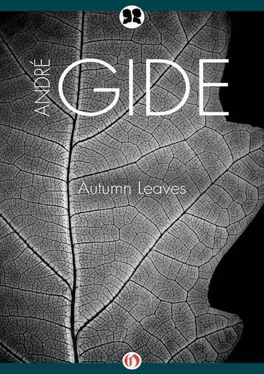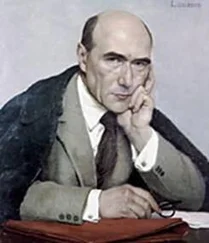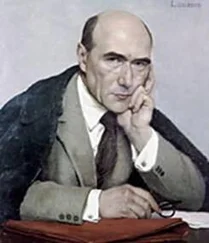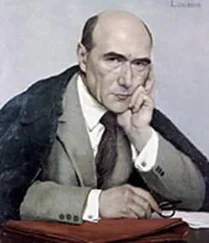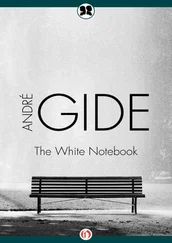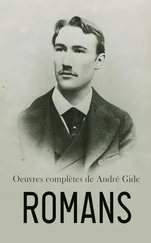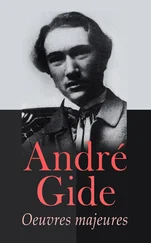“So?”
“So they acquitted the hunters.”
“But, Mulot, that doesn’t tell me why you were convicted, you who hadn’t done anything.”
“Why, of course, for false witness. The only one to tell the truth is the one who becomes the liar.”
I was so astonished I couldn’t find anything to say. Mulot gave a few blows with his pick, then:
“Now, look, Monsieur Gide, what hurt me the most in all this story, is to have been let down by my brother. He had seen everything the same as I had. He must have understood very well that, by his denying everything like the others, it was I who would be sentenced.”
Mulot had pronounced the last words in a pathetic tone that was not usual for him. But he lowered his voice almost immediately, and it was with a sort of gentleness that he added:
“False witness!.. I understand that, for a keeper or factor, you prefer something else. Well, what is there to do about it?”
A terrible indignation rushed over me like a sort of mystical aura.
“But, Mulot, that’s monstrous. We must.… We must be able.…”
“You can’t do anything, Monsieur Gide. Believe me. At the time, I had hard work accepting it. It’s hard, you understand, to be sentenced for something you didn’t do.… But I was helpless. I had to give in. The matter was settled. I served my sentence. Two years of prison. Afterwards, I moved away. Now I don’t think of it any more. I try not to think of it any more.”
And he began to dig again.
I left him with a heavy heart. I was at the age when injustice causes unbearable misery. (Oh! I haven’t grown up very much on that score.) I neither wanted to, nor could I make up my mind to accept that sentence of Mulot’s. Toward the end of my vacation, I saw Mulot again.
“I’m going back to Paris soon,” I said to him, “and I.…”
“Don’t do anything, sir. Believe me. It’s useless.”
But as soon as I got back to town, I looked around among my acquaintances for someone who could give me good advice, inform me as to the steps I should take to procure the rehabilitation of Mulot. I knew my classmate, Léon Blum, then just a simple “auditeur” in the Conseil d’Etat, was well versed in law. It was he whom I went to consult. He informed me, to my childish astonishment, that an appeal for pardon could not be obtained without a complete review of the case. What an affair! Find all the original witnesses again; subpoena them once more; make the acquitted appear, those people who had become important, and to whom the acquittal of Mulot would bring a retrospective sentence.… I would do better to give up.
* * * *
Time passed. I had sold La Roque: part of the farms to Charles Mérouvel, the illustrious author of Chaste et flétrie; then the rest to a M. M.… who soon resold it to the Count Hély d’Oissel. Nothing called me back to that part of the country but my old friendship for my former neighbor in the country. During a visit in his home, ten or fifteen years after the sale, I again saw Robidet who was still living in the neighborhood. He had bought a house from Mérouvel along the highway opposite the blacksmith-shop.
“Perhaps Monsieur remembers Mulot?” he asked me, in the course of a boring and endless conversation, for the years had not made him less talkative. “Well, he has become mayor of X.” (It was a little neighboring commune.)
“And his police record?”
“Outlawed by the statute of limitations.”
“I am very happy for his sake.”
“Oh! he wasn’t such a bad fellow, in spite of that matter of morals.”
“That matter of morals?”
“Why his sentence!”
“What are you talking about? Mulot was sentenced for false testimony. Unjustly besides.”
Then Robidet mockingly:
“Umph! For rape of a little girl.… It’s true, at that time, we didn’t dare tell Monsieur.”

1Ghéon had just finished Le Pain; Paul Fort, Louis XI; I, my Saül; and we had met to read them to each other.
I
WHEN I had finished my first studies, my mother thought it would be a good thing to introduce me to “society”. But aside from some not too distant cousins and the wives of a few of my father’s colleagues at the Faculty of Law, transplanted from Rouen to Paris, she had never tried to make any acquaintances. Furthermore, the world in which it seemed I was to be interested, that of men of letters or artists, was not “her” world; she would have felt herself out of place in it.
I no longer know to what drawing-room she took me that day. It must have been that of my cousin Saussine, at whose home, on the rue d’Athènes, I took tiresome dancing lessons twice a week. It was the day they received. There were numerous introductions, and the conversation was approximately what all society conversations are, made up of little nothings and affectations. I turned my attention less to the other ladies than to my mother. I scarcely recognized her. She, ordinarily so modest, so reserved, and seemingly, fearful of her own opinion, appeared in that social gathering, full of assurance and, without pushing herself forward at all, perfectly at her ease. One would have said that she was playing a role exactly as it should be, without, moreover, attaching any importance to it, but willingly consenting to mingle in the game of the society parade to which one contributes hardly anything but outward appearances. It even seemed to me that, in the twaddle and foolishness all about, a few particularly sensible sentences of hers, threw the general conversation into disorder; the ridiculous remarks immediately collapsed and disappeared into thin air, like ghosts at the crowing of the cock. I was amazed, and told her so, as soon as we escaped from that Vanity Fair, and found ourselves alone together.
For my part, I dined that evening with Pierre Louys, I believe. At any rate, I remember that I left her as we turned the corner of rue d’Athènes. But I came back to her almost immediately after dinner. I was in a hurry to see her. We were then living on the rue de Commaille. The windows of our apartment opened on a deep garden that no longer exists to-day. My mother was on the balcony. She had taken off her finery, and I rediscovered her in her simple, drab, everyday clothes. It was the season when the first acacias smell sweet. My mother seemed worried; she did not make confidences easily and doubtless the co-operation of springtime was needed to invite her to speak.
“Is what you said to me as we left our cousin’s true?” she began with a great effort. “You really think so? I was … well, as good as the others?”
And as I began to exclaim, she continued mournfully:
“If your father had told me so even once … I never dared ask him, and I needed so terribly to know, when we went out together, if he was …”
She was silent for a moment. I looked at her trying to hold back her tears. She finished in a lower tone of voice, hardly audible:
“… if he was pleased with me.”
I think that those were her exact words which suddenly let me understand how many worries, unasked questions and expectations could, under the appearance of happiness, still dwell in even the most united of couples. And such were my parents in the eyes of everyone and of their son. What my mother had vainly awaited was not a compliment from my father, but only the assurance that she had been able to prove herself worthy of him, that he had not been disappointed in her. But what my father thought, I knew no more than she; and I understood, that evening, that every soul carries to the tomb to hide it there, some secret.
II
Читать дальше
